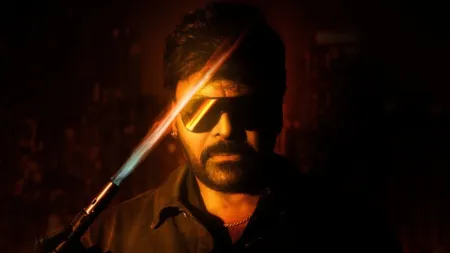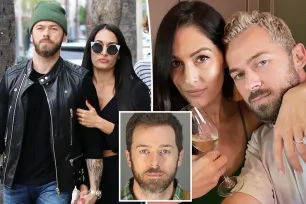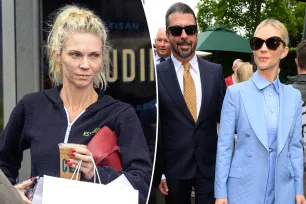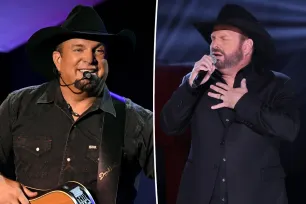Why did Kattappa kill Baahubali? — “The only reason I accepted to do Indian 2 is because of Indian 3”: Kamal Haasan — “The decline of the Kannada industry in recent decades can be attributed to the scarcity of talented writers”: Raj B Shetty. — Keep these three points in mind, as they are essential to the discussion surrounding director Koratala Siva’s ‘epic’ action drama Devara: Part 1, starring NT Rama Rao Jr (Jr NTR).
With Devara grossing Rs 172 crore worldwide on its first day and earning over Rs 350 crore globally in a week, Jr NTR has once again proven his worthiness of the sobriquet “Man of Masses”. Yet, some questions remain: can Devara maintain its momentum and rank among the highest-grossing Indian films ever? Is it a memorable movie? At a time when every superstar film is “monumental”, but with grandeur often limited to production design and action sequences, the only way for any film to stand out today and surpass its predecessors is through a compelling narrative that lingers in viewers’ minds and memorable performances. By that logic, no, Devara might not have what it takes.

Must Read | Devara marks Janhvi’s homecoming, as South coronated Sridevi as a Queen first
It’s not that Devara’s narrative is subpar, but it is strictly mediocre and, unfortunately, lacks novelty in most aspects, giving a sense of déjà vu every now and then. From the mass elements not being massy enough and the emotional moments failing to emote much, to the drama lacking the necessary dramatisation and the romance feeling unromantic — Devara is a carnival of misfires. And it needs to be said that the biggest enemy of director Koratala Siva is none other than writer Koratala Siva.
It’s high time Indian filmmakers realised and accepted that it’s not always essential for directors to write their own scripts. While the idea that “no one knows your story better than you” has merit, not everyone is a skilled screenwriter; remember, story and script are two different things. A director may be brilliant with visuals but not necessarily with words. There are countless classic movies worldwide whose scripts were written entirely by designated screenwriters and not their directors, proving that not writing one’s own scripts doesn’t make someone any less of a filmmaker.
Watch Devara Part 1 trailer here:
While directors should certainly have a say in the writing process, taking on the entire responsibility of it while also managing the filmmaking process can be overwhelming. This often results in insufficient time to refine the screenplay as needed. Recent examples of this can be seen in the weak writing of films like KGF: Chapter 2 (2022), Kalki 2898 AD (2024), Salaar: Part 1 – Ceasefire (2023) and Brahmāstra: Part One – Shiva (2022). Although hiring additional screenwriters isn’t a magic fix for every problem, it definitely isn’t senseless.
And if the Telugu industry can’t come up with at least a short list of powerful writers when planning such projects, it needs to have serious discussions, keeping in mind what Raj B Shetty once said about Sandalwood. He pointed out that when writing improves, associated fields will also benefit and added that the issue for a long time has been the industry’s failure to nurture and encourage the growth of writers.
 It’s not that Devara’s narrative is subpar, but it is strictly mediocre. (Image: Devara/Instagram)
It’s not that Devara’s narrative is subpar, but it is strictly mediocre. (Image: Devara/Instagram)
Unfortunately, Devara fails in this aspect and opens itself with a clichéd scene of a high-level government meeting. And trapping the villain’s second-in-command while he visits his female companion — come on, how many times will this situation be recycled? After the trailer was released, many viewers noticed a striking similarity between Jr NTR’s dramatic emergence from the sea, like a whale, and Vijay’s intro shot in Sura (2010). The fact that this itself serves as the hero’s intro in Devara makes it all the more ridiculous and that’s an image hard to forget for all the wrong reasons.
The ability to discern what should be cut or retained in a script is an essential skill and Devara shows it isn’t one of Siva’s strongholds. Had it been, a second part wouldn’t have been necessary. Indian film industries’ obsession with dragging out movies into unnecessary sequels for the sake of it has become a troubling trend. While director SS Rajamouli managed to do it with Baahubali, since he had just enough content to warrant a second part (though even Baahubali 2 wasn’t as tight as the first part), this trend has now become a formulaic approach, with filmmakers and production houses digging their own graves by compromising what could be one strong movie to make two mediocre-to-poor ones.
#Devara Inspiring Sura 😂 pic.twitter.com/5ebGzmtKrJ
— Lollu Facts (@Lollu_fact) September 10, 2024
During the promotion of Indian 2, Kamal Haasan remarked, “Truth be told, the only reason why I accepted to do the second part is because of the third part.” However, when this was interpreted by many as a suggestion that Indian 2 might not be good, he later clarified, “I only said that I liked Indian 3 more – not that I didn’t like Indian 2.” Nonetheless, it’s reasonable for viewers of Indian 2 to consider Kamal’s earlier comment a Freudian slip.
Apparently, Shankar decided to split Indian 2 into two parts because he didn’t want to edit out any filmed scenes. “If I compressed the whole thing, the soul of each and every scene, the feel of every scene would have been lost. I was able to see there are two parts in that story and each part has its own strength, whole form, engaging scenes, and a start, a body, and a climax and finish. So it evolved automatically into two parts,” Shankar explained at its trailer launch event. Nevertheless, one can’t avoid saying that a judicious edit would have reduced Indian 2 to the length of a short film.
 The ability to discern what should be cut or retained in a script is an essential skill and Devara shows it isn’t one of Siva’s strongholds. (Image: Devara/Instagram)
The ability to discern what should be cut or retained in a script is an essential skill and Devara shows it isn’t one of Siva’s strongholds. (Image: Devara/Instagram)
Devara too suffers from a similar issue, featuring many scenes that either reiterate the same point or are pointless. Shortly after Devara’s introduction, the villagers break into a song celebrating him, though it’s unclear what he has done to deserve this. Despite establishing that Devara and Bhaira (Saif Ali Khan) do not get along, the film repeatedly shows Bhaira interrupting Devara when he’s talking, contradicting him to emphasise their enmity — all equally purposeless moments.
Meanwhile, the Rajamouli influence in Devara goes beyond its two-part structure. In Baahubali (2015), Kattappa (Sathyaraj) serves as the narrator, explaining to Mahendra Baahubali who his true father is and why Amarendra Baahubali (both roles played by Prabhas) was revered by the commoners. In Devara, Kattappa is replaced by Singappa (Prakash Raj), a non-combatant who plays a similar role as a devoted sycophant. Singappa narrates the story of Devara and his son Varadha aka Vara (both roles played by Jr NTR) to random police officers, thus acting as ‘the guy in the chair’. And hope you noticed that in both films, the protagonist and his equally righteous son are portrayed by the same lead actor. Furthermore, in both movies, the respective fathers are deceived into battles that become their last. (Spoilers ahead) Just as Kattappa stabbed Baahubali in the back — prompting the world to wonder “Why did Kattappa kill Baahubali?” until Baahubali 2 (2017) was released — in Devara’s climax, a mid-teenager Vara is shown stabbing Devara in the heart without revealing to viewers why. By that point, the film had indicated that Vara was on a mission to fulfil his father’s dream of liberating their Red Sea villages from illegal activities, ensuring the men no longer engage in smuggling goods, including weapons, from ships, and could live as fishermen. Thus, the revelation that Vara killed Devara want us to raise the question, “Why did Vara kill Devara?”
 In Devara, Saif Ali Khan, despite playing a shallow and underdeveloped character, manages to outshine Jr NTR frequently. (Image: Devara/Instagram)
In Devara, Saif Ali Khan, despite playing a shallow and underdeveloped character, manages to outshine Jr NTR frequently. (Image: Devara/Instagram)
Like the typical heroes in pan-Indian movies, Devara too is portrayed as pure at heart, with his flaws and violent actions conveniently overlooked because… well, because he’s the hero and the role is played by Jr NTR; that’s all. And how to convey his goodness? Easy, just fall back on the cliché of showing him taking care of the family of a man who died in the line of duty with him. And to demonstrate his influence? Simply have people stand or bow with folded hands when they see him — why bother with thoughtful writing? Soon, Devara and Vara become vigilante figures, much like Anniyan (2005), Indian thatha, Batman etc.
“When their enemies were at the gates, the Romans would suspend democracy and appoint one man to protect the city. Now, it wasn’t considered an ‘honour’ it was considered a public service,” Harvey Dent (Aaron Eckhart) says in The Dark Knight (2008). While Devara and Vara too become such protectors of their clan, albeit self-proclaimed, the lack of depth in Jr NTR’s portrayal detracts from the impact. No matter how much the movie tries to build him up as a mass hero, it simply doesn’t work and those who have seen RRR (2022) and him excel in high-octane scenes, would know the problem isn’t entirely with the actor. And Anirudh’s music does nothing to improve the situation.
In Petta (2019), which celebrated all things Rajinikanth, director Karthik Subbaraj made a big mistake by casting Nawazuddin Siddiqui and Vijay Sethupathi and even with limited screen time, their immense talent overshadowed Rajini’s presence. A similar issue arises in Devara, where Saif, despite playing a shallow and underdeveloped character, manages to outshine Jr NTR frequently.
View this post on Instagram
A post shared by Devara Movie (@devaramovie)
A large part of Devara’s hype can be attributed to Janhvi Kapoor’s Telugu debut through it since her mother Sridevi was a reigning star in South India for years. However, if one thought Bhaira was a poorly written character, Koratala Siva soon proves them wrong by introducing Thangam (Janhvi) whose sole purpose is to discuss her future marriage. Her only desire in life is to marry someone like Devara — macho, powerful and capable of taking down scores of rivals single-handedly. She follows Vara around, assessing whether he is “manly” enough like his father to win her affection. While one would expect better characters since we have reached 2024, Janhvi’s introduction itself proves otherwise. Here, she’s shown bathing, clad in just a lungi. The purpose? Just to showcase as much of her skin as possible. Even when she interacts with her friends, all they discuss is marriage and men. And just when one can’t roll their eyes any harder, the song “Chuttamalle” arrives, pushing sexism and hypersexualisation to new extremes.
What’s most frustrating about Devara is that it was not beyond redemption. Its flaws could have been rectified if the makers hadn’t been so stubborn — clinging to their shoddy writing, the star power, outdated conventions and the Rajamouli formula. Makers should keep in mind that while box office numbers are undeniably important, they only indicate whether a movie was a hit or a flop, not whether it was good or bad. That’s something audiences can easily discern by watching the work, no matter how many years pass.
Disclaimer: The copyright of this article belongs to the original author. Reposting this article is solely for the purpose of information dissemination and does not constitute any investment advice. If there is any infringement, please contact us immediately. We will make corrections or deletions as necessary. Thank you.







